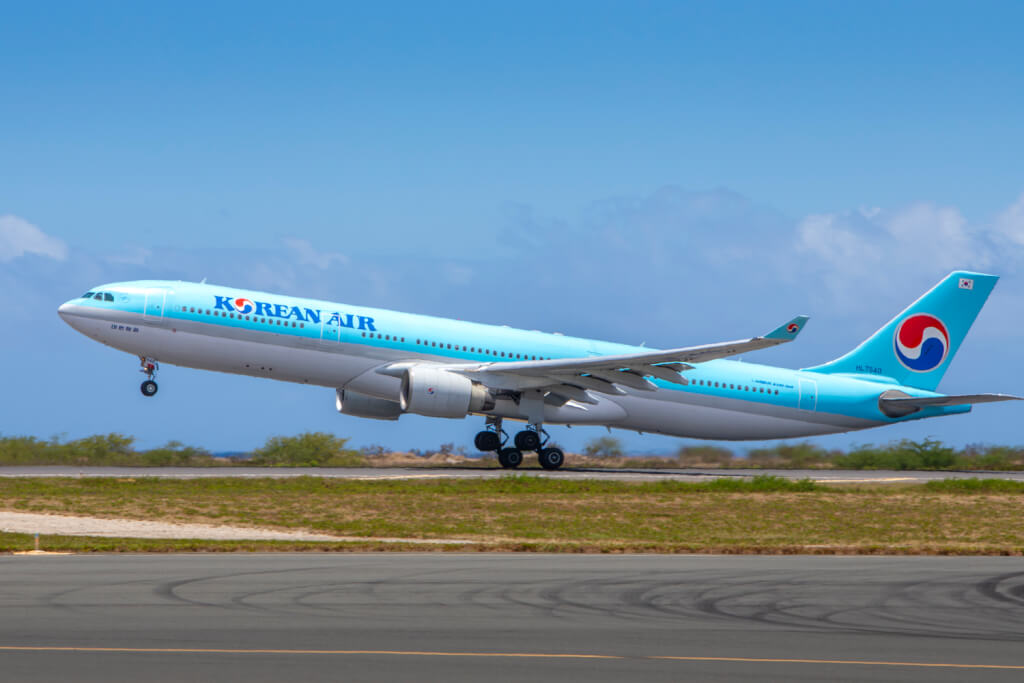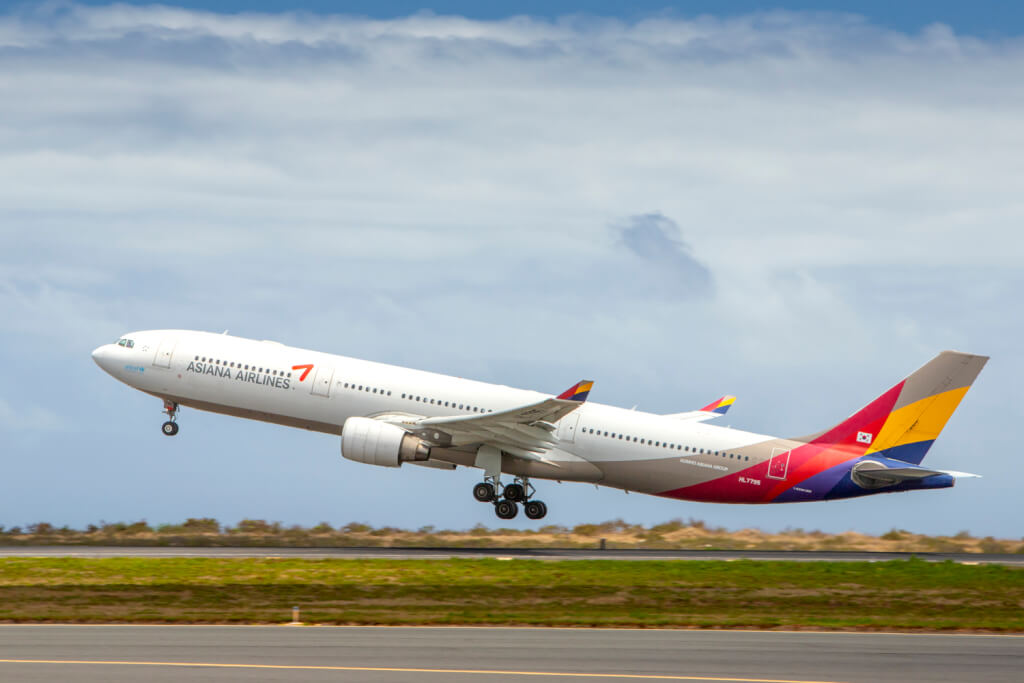South Korea is one step closer to having just one mainline international airline, as the Korean-Asiana merger moves closer to finalizing. This long-in-the-tooth process is years in the making and may have notable impacts for the points and miles community.
Asiana Airlines was founded in 1988 for other chaebols led by Kumho to compete against the Hanjin Group, which is the owner of Korean Air, which itself was founded in 1962. However, despite scoring high marks from passengers and rating organizations, Asiana Airlines and parent Kumho Asiana Group, found itself facing significant financial challenges. This resulted in the airline retracting by cutting unprofitable routes and looking to sale the airline.
That same year, Aekyung Group, Mirae Asset Daewoo, HDC Hyundai Development Company, and Korea Corporate Governance Improvement, all expressed interest in acquiring the airline, with a consortium of Mirae Asset Daewoo and HDC Hyundai Development Company being selected as the preferred bidder. However, Asiana’s primary creditor, Korea Development Bank, rejected the bid, and chose to operate the airline until another suitor could be found.
Enter Korean Air. Naturally, a bid by Asiana’s largest competitor raised a lot of red flags. As such, over the past five years, the Hanjin Group has been working to allay concerns governments around the world have with the acquisition. Well, it would appear that their work has been going well, as the Korean-Asiana merger moves closer to finalizing, with many of their major hurdles now being cleared.
Korean-Asiana Merger Moves Closer to Finalizing
Since Korean Air and Asiana are major international carriers, a merger of the two required the approval of many governments around the world – not just South Korean officials. Well, the Korean-Asiana merger moves closer to finalizing, as all 13 of 14 countries have now approved the merger. The United States remains the last outlier, though inaction by the U.S. Department of Justice does suggest tacit approval.
That said, this news comes as the last major hurdle besides the U.S. was cleared, with officials giving the merger their blessing, as the airline agreed to sell Asiana’s cargo business to Air Incheon, and will give two overlapping route authorities to low-cost carrier T’way Air. It’s also worth noting that Korean Air low-cost subsidiary Jin Air will be absorbing Asiana low-cost subsidiaries Air Busan and Air Seoul, making Jin Air significantly larger Jeju Air and T’way Air.
Under the terms of the current plan, both brands will continue to operate separately for two years, though Asiana will eventually be absorbed into Korean Air.
Points & Miles Implications
Now that the Korean-Asiana merger moves closer to finalizing, we should go over the points and miles implications. First and foremost is alliance affiliations, as Korean Air is a member of SkyTeam, while Asiana is a member Star Alliance. Naturally, Star Alliance will be losing its sole Korean carrier in 2026, decreasing the number of options Star Alliance members will have. Though, to be honest, Asiana was always overshadowed by All Nippon Airways and Singapore Airlines, anyway.
Regardless, the inability to redeem Star Alliance member airline miles for travel to and within Korea is a loss. That said, some out of alliance opportunities remain, such as Korean Air redemptions via Alaska Mileage Plan and HawaiianMiles, which just reaffirms my belief that Mileage Plan remains one of the best (if not the best) program in the U.S.
Final Thoughts
While we’re seeing the elimination of some points and miles options, that the Korean-Asiana merger moves closer to finalizing means we still have time. As I mentioned earlier, with plans to keep operating the two airlines as two separate ones through 2026, we have at least the next couple of years to take advantage of the current setup. After that? You’ll have to rely on cash purchases, SkyTeam partners, or Alaska Mileage Plan for intra-Korea travel.


